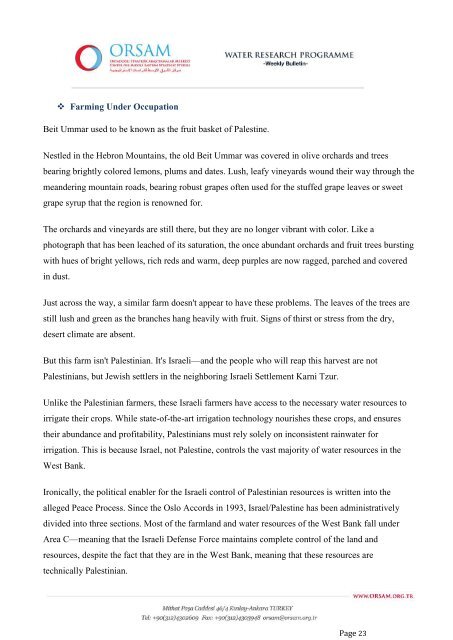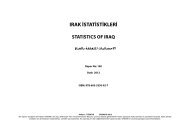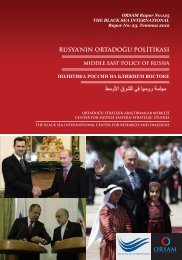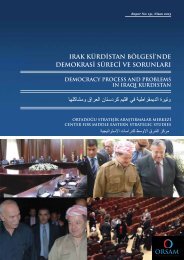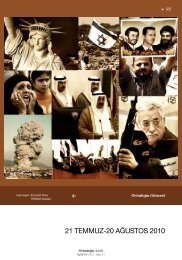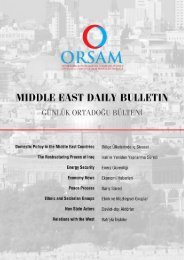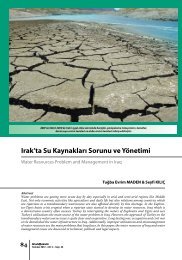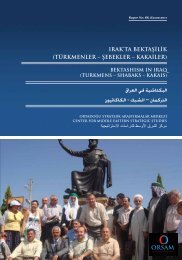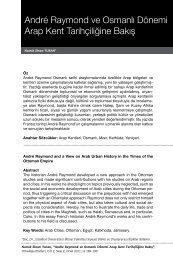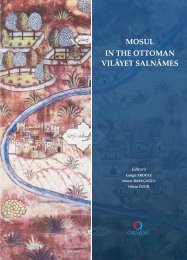01-07 October 2012 - orsam
01-07 October 2012 - orsam
01-07 October 2012 - orsam
You also want an ePaper? Increase the reach of your titles
YUMPU automatically turns print PDFs into web optimized ePapers that Google loves.
Farming Under Occupation<br />
Beit Ummar used to be known as the fruit basket of Palestine.<br />
Nestled in the Hebron Mountains, the old Beit Ummar was covered in olive orchards and trees<br />
bearing brightly colored lemons, plums and dates. Lush, leafy vineyards wound their way through the<br />
meandering mountain roads, bearing robust grapes often used for the stuffed grape leaves or sweet<br />
grape syrup that the region is renowned for.<br />
The orchards and vineyards are still there, but they are no longer vibrant with color. Like a<br />
photograph that has been leached of its saturation, the once abundant orchards and fruit trees bursting<br />
with hues of bright yellows, rich reds and warm, deep purples are now ragged, parched and covered<br />
in dust.<br />
Just across the way, a similar farm doesn't appear to have these problems. The leaves of the trees are<br />
still lush and green as the branches hang heavily with fruit. Signs of thirst or stress from the dry,<br />
desert climate are absent.<br />
But this farm isn't Palestinian. It's Israeli—and the people who will reap this harvest are not<br />
Palestinians, but Jewish settlers in the neighboring Israeli Settlement Karni Tzur.<br />
Unlike the Palestinian farmers, these Israeli farmers have access to the necessary water resources to<br />
irrigate their crops. While state-of-the-art irrigation technology nourishes these crops, and ensures<br />
their abundance and profitability, Palestinians must rely solely on inconsistent rainwater for<br />
irrigation. This is because Israel, not Palestine, controls the vast majority of water resources in the<br />
West Bank.<br />
Ironically, the political enabler for the Israeli control of Palestinian resources is written into the<br />
alleged Peace Process. Since the Oslo Accords in 1993, Israel/Palestine has been administratively<br />
divided into three sections. Most of the farmland and water resources of the West Bank fall under<br />
Area C—meaning that the Israeli Defense Force maintains complete control of the land and<br />
resources, despite the fact that they are in the West Bank, meaning that these resources are<br />
technically Palestinian.<br />
Page 23


